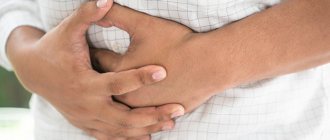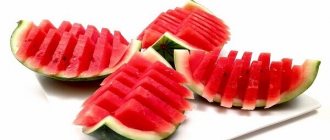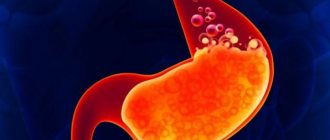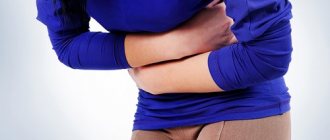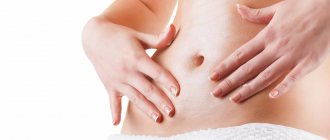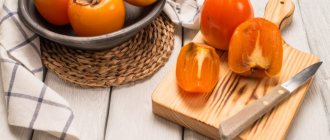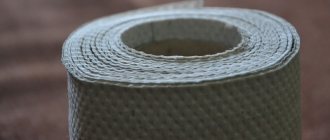Why you need to diet
Proper diet and nutrition for ulcerative inflammation of the large intestine are necessary to eliminate chemical and mechanical irritation of the mucous membrane of the digestive tract.
The disease is characterized by inflammatory processes in the large intestine, disruption of the absorption of nutrients and loss of protein by the body, which is released from it in feces.
That is why patients experience such manifestations as anemia, general exhaustion, allergies and other pathological changes. And if you do not adjust your diet in time, the symptoms of the disease will increase.
Nutrition for ulcerative colitis may depend on the nature and course of the disease. It is extremely important to maintain the amount of protein the body needs to prevent further depletion.
To strengthen and increase your defenses, it is very important to add vitamins to your daily diet, which are found in large quantities in plant-based foods.
It is important to eat properly during periods of exacerbation of colitis. To do this, it is necessary to protect the mucous membrane as much as possible from damage by chemicals and solid food particles. The diet for ulcerative colitis of the colon requires that all food be mechanically and chemically safe.
How to create the necessary diet
Dietary nutrition for colitis is prescribed for a reason. The purpose depends on the clinical picture of the disease, and the individual characteristics of the human body also play an important role.
Here are some of the factors:
- The severity of the disease.
- How long the colon has been affected.
- It is important what signs the patient has.
- How long was the inflammatory process?
- How effective was the treatment?
Remember that treatment of this pathology will be effective and will help in restoring the damaged intestines if it is carried out comprehensively.
If a mild or moderate form of the disease is diagnosed, the doctor must prescribe medication and diet, and the patient can undergo treatment at home, but it is very important to undergo examinations from time to time.
But if a severe form is diagnosed, then treatment in a hospital is possible. When preparing a diet, the doctor must first of all solve the following problems:
- Normalization of feces. But it is important not to overdo it; the products should not contain coarse fiber, because it can cause a greater inflammatory process.
- It is important to provide sufficient fluid and nutrients. This is an important factor, because due to the fact that the patient suffers from diarrhea, the body loses a lot of fluid and, therefore, all useful substances are lost along with the fluid.
- It is necessary to reduce the number of secreted digestive enzymes. The nature of enzymes is such that they behave aggressively because they break down any products. If there are problems in the process of digesting food, enzymes in addition to food can corrode the intestinal mucosa. Therefore, dietary nutrition should reduce the likelihood of such enzyme behavior.
Also, the diet for nonspecific ulcerative colitis of the intestine differs in its characteristics; consider these features:
- Be sure to consume a normal amount of fluid per day, which is at least one and a half liters. It can be water, but the best type is a tea drink or herbal infusion.
- You need to eat this way more often so that you don’t feel like you’re hungry. Normally, meals should be taken at intervals of a couple of hours. This is enough for the previously eaten portion to be digested and saturate the body with the necessary substances.
- Well, the consumption of dairy products is influenced by the individual characteristics of a person. Drinking milk is the most neutral, but sometimes it can complicate the digestive process. In any case, you can drink it as a stand-alone product or add it, mixing it with water, to prepare porridges.
- The level of energy value of a daily meal should be at the level of 2500-2800 kcal. The diet should include foods that contain protein, fat and carbohydrates and should be in a ratio of 1:1:4. During the day, the patient must consume at least one hundred grams of protein and the same amount of fat, always of plant origin, and at least 400 grams of carbohydrates, not counting vegetables and fruits that contain coarse fiber.
- In order to maintain the name system, it is recommended to use various decoctions; they can be based on rose hips, pears, blueberries and any sweet berries.
- Food must be steamed or it can be baked. Meat food - this can be steamed cutlets, or eating soufflé from fish or chicken (necessarily not fatty). The main dish, in case of aggravated pathology, should be a soup of grated vegetables and cereals, it is also important to cook and eat porridge cooked in water, you can add about twenty grams of oil (no more) to it.
- It is very important to eat foods that are filled with vitamins such as C, A, K, group B and Ca. This is very important when diagnosing the disease at the initial stage, when the use of antibiotics is not required. But in severe cases of the disease, almost all medications contain these vitamins.
- Meals should be in small portions. Due to the irritated mucous membrane, eating any food will cause discomfort. If the portion is small, it will be easier for your intestines to deal with it. In addition, if you consume a large amount of food, you will need a large number of enzymes to break it down.
Nutrition rules
Diet as one of the ways to improve the functioning of the gastrointestinal tract. When the disease develops, the diet should be developed only by a doctor, who takes into account the characteristics of the course of the disease, as well as its stage. With the correct diet and adherence to its rules, patients will notice improvements within a week. The patient is advised to steam all meals. You can also eat boiled foods; eating excessively cold or very hot food is strictly prohibited. If the dishes contain a large number of calories, then they must be consumed before lunch.
After lunch, patients are recommended to eat only light food. Patients are prescribed fractional meals. They should eat 5 to 6 times a day. In this case, the patient’s portions should be as small as possible. Patients with nonspecific ulcerative colitis are strictly prohibited from eating after nine o'clock in the evening. When selecting products for a patient, it is recommended to give preference to those options that contain large quantities of protein. It is recommended that a person consume at least 110 grams of protein per day.
The patient’s menu should consist of only natural food. It is necessary to choose only fresh food for patients. If the patient experiences an exacerbation of ulcerative colitis, then he needs to adhere to table No. 4. This diet is prescribed for a variety of intestinal diseases. Thanks to this nutrition, the inflammatory process is reduced, and fermentation and putrefaction in the intestines are eliminated, which has a positive effect on the treatment process.
With the help of diet, the functioning of the digestive tract is normalized. The patient's body can receive all the necessary nutrients. The effect of dietary nutrition is aimed at enhancing intestinal motility. During the period of its use, the process of gastric juice production is stabilized. The diet is prescribed if the patient has acute, nonspecific or chronic colitis. The duration of the diet should be at least 7 days.
Principles of diet planning
The diet is selected taking into account such characteristics as:
- patient's age;
- type of employment;
- severity of the inflammatory process;
- prevalence and localization of lesions;
- presence of food allergies;
- concomitant pathologies of the gastrointestinal system.
There are classic requirements:
- Eat 5-6 times a day in small portions.
- Very cold or, conversely, too hot food is prohibited.
- Table salt is limited to 8-10 g per day.
- The volume of liquid (water) per day is 1.5-2 liters.
Protein and iron deficiencies must be corrected because patients often have low protein levels (poor absorption, mucus) and anemia associated with recurrent bleeding. The daily diet should be high enough in calories to cover the body's energy needs - especially if a person leads an active lifestyle (plays sports) or his work responsibilities include regular physical activity.
Menu and stages of disease development
A gastroenterologist will help you create the right diet for ulcerative colitis. For patients with ulcerative colitis, the menu is prescribed only by a gastroenterologist. It determines the characteristics of the development of the disease, on the basis of which the menu is drawn up. If the patient has a severe form of the disease, then he needs to increase the amount of protein. This is explained by its very rapid elimination against the background of intoxication. The patient's diet should consist of low-fat cottage cheese, boiled eggs, cheese, lean meat and fish, and buckwheat.
The menu roughly looks like this: For breakfast you need to eat an omelet, which is prepared using two eggs. You should also drink a cup of green, black or herbal tea. The patient's second breakfast should consist of cottage cheese. For lunch, you can prepare meat soup and boil vegetables. The patient's afternoon snack should consist of baked apples. For dinner you need to prepare rice porridge, jelly and low-fat fish. Fish should be consumed boiled by the patient in an amount of no more than 100 grams.
Quite often, with nonspecific ulcerative colitis, patients are prescribed table No. 4. Due to the high effectiveness of the menu, it is prescribed to children from the age of seven, as well as to adult patients. Table No. 4 consists only of permitted products, which eliminates the possibility of developing the disease. For breakfast, the patient is recommended to eat buckwheat porridge, which is cooked in water, a steamed cutlet and tea. The second breakfast should consist of a piece of boiled meat and jelly. For lunch, you can prepare a rice casserole to which meat is added, as well as soup with meatballs and pear compote. The patient's afternoon snack should consist of crackers and tea. For dinner, the patient is given mashed potatoes, which are prepared using meat broth. You also need to eat a fish cutlet and wash it down with tea. For the second dinner you are allowed to eat one baked apple.
Treatment of nonspecific ulcerative colitis
To make the treatment of this disease more effective, it is important to follow a strict diet. It has its own individual specifics and compliance with it is considered necessary for effective treatment.
Let's take a closer look at what rules this dietary food contains:
- Eating several walnuts daily is essential.
- Also, if you have a severe illness, you cannot eat in large portions, because the process of digestion and assimilation of food is disrupted; for this reason, during the period of therapy, portions should be small and the interval between meals should be no more than 2 hours. The wedding must be before nine o'clock in the evening.
- Nonspecific ulcerative colitis is characterized by a disorder of protein metabolism. The manifestation of the disorder is most clearly observed during relapse of the pathology. If you have such problems, you need to eat products that contain large amounts of protein.
- If the illness is acute, you need to drink a decoction based on rose hips, pears, blueberries, or any fruits and berries. Drinking tomato and orange juice is allowed.
- It is important that with such pathology a reduction in the amount of fluid is required. Its volume should depend on the consistency of the feces. With copious and watery excrements, you need to reduce the amount of liquid to five glasses per day.
- The food consumed should not only be tasty, but also varied. While undergoing treatment, you are allowed to eat lean meat, which should be steamed or simply boiled. You can also eat ground porridge, a slightly toasted piece of white bread is very tasty, and you can also eat boiled eggs.
- If the patient’s condition improves, an expansion of the diet can be allowed, but foods that are poorly tolerated by the body should not be consumed throughout the person’s life.
Prohibited products:
- Numerous people who suffer from the above disease cannot tolerate dairy products. Therefore, by removing them from the diet, the patient’s well-being will significantly improve.
- If you have a pathology such as ulcerative colitis, you need to remove fried, spicy, fatty and salty foods from your diet. The consumption of chocolate, mushrooms, beets and dried apricots, plums, fruits and vegetables and all legumes is also prohibited.
- When the disease worsens, it is necessary to limit sweets and juice consumption.
Diet for ulcerative colitis
Nonspecific ulcerative colitis is an inflammation of the large intestine with the presence of ulcerative lesions of the mucous membrane, necrosis and hemorrhage. Most often, the process is localized in the rectum and colon, and with severe damage, all parts of the colon are involved. The causes of the disease have not been established. It is assumed that the basis is immunological disorders and hereditary predisposition, and the predisposing factor is the presence of infection.
With nonspecific ulcerative colitis, the patient is bothered by diarrhea mixed with blood or pus. The frequency of bowel movements reaches 20 times a day or more (in severe cases). Often there is blood in the stool and blood loss of 100-300 ml is possible per day. UC is characterized by severe cramping pain that intensifies after eating.
In severe cases, intoxication syndrome is observed with weakness, fever, decreased appetite, and systemic manifestations are also characteristic (polyarthritis, eye and liver damage). In the chronic form of the course, dystrophic syndrome develops (dry skin, weight loss, hypovitaminosis).
With this disease, complete restoration of the mucous membrane and normalization of digestion and absorption do not occur for a long time. And only strict adherence to dietary nutrition and medications create the conditions for achieving remission. In this case, Table No. 4 and its varieties are assigned depending on the stage of the process.
During an exacerbation, the diet includes liquid and pureed porridge (rice, semolina) in water (milk and broths are excluded). Buckwheat porridge enhances motor skills, so it is not recommended during an exacerbation. It is convenient to use porridge for baby food, but it needs to be diluted by half with water.
Includes dishes from lean meat and fish (in the form of boiled minced meat, dumplings, steamed cutlets, pates). Protein omelettes made from eggs are useful (no more than two per day). During an exacerbation, the amount of protein in the diet should be increased to 120-125 g.
Drinks include herbal decoctions, compotes and jelly, chokeberry juice. Baked apples and pears are allowed. Particular attention should be paid to products that reduce intestinal motility - decoctions and jelly from bird cherry, blueberry, quince, dogwood, pear, strong black and green tea. During an exacerbation, some patients do not tolerate even boiled vegetables well, so it is better to exclude them. Consumption of milk, fermented milk products, sour cream, cheeses and cottage cheese is also not recommended.
For a month after an exacerbation, it is necessary to strictly adhere to the diet; subsequently, it is recommended to switch to Table 4B and 4B and the general table with the restriction of certain foods for health reasons. After an exacerbation, foods that promote hematopoiesis are introduced into the diet, red and black caviar, walnuts, and meat broths are gradually added. During the period of stable remission, the consumption of vegetables (broccoli, cauliflower, carrots, zucchini, onions) is allowed.
Recommended and excluded products
It is recommended to cook soups in water, adding vegetables, noodles or cereals. Meat, fish and mushroom broth are excluded. The menu of table No. 5 for every day, as a rule, provides for the consumption of boiled or steamed cutlets from lean meat or fish. Fatty foods have no place on the table. Dairy products should also contain a reduced percentage of fat content. The bread should be dried or yesterday's bread. Fresh baked goods and pastries are not allowed. You can eat crackers, bread, bagels, and dry cookies.
Products for diet in remission
A wide range of products can be used on the menu for ulcerative colitis. However, the remission stage does not cancel proper nutrition. Here's what you can eat:
- soft-boiled eggs, steam omelettes, scrambled eggs cooked without oil;
- porridge with water, you can add milk only to the prepared side dish and infrequently;
- among dairy products, preference is given to low-fat cottage cheese, kefir, yogurt without fillers, fermented baked milk (you can eat sour cream up to 10% fat);
- As for protein products, jellied meat made from lean beef, fish, and pates are ideal;
- sausages can be included in the diet if they are made from natural products;
- when fresh, the healthiest vegetables are tomatoes and cucumbers (you can make pizza for UC with tomatoes and oatmeal);
- other vegetables should be served boiled or baked;
- compotes and jelly serve as a healthy source of carbohydrates;
- Among fruits and berries, apricots and plums are especially useful; you can eat melon during the season;
- It is better to choose white varieties of bread and crackers;
- You can drink vegetable juices, decoctions of herbs, rose hips, and weak tea.
It is good if the diet for ulcerative colitis contains seasonings: bay leaf, cinnamon, herbs. Unrefined vegetable oil is useful in small quantities.
Additional products for UC:
- Fruits: apples, pears, quince, dogwood;
- Berries: blackberries, blueberries, bird cherry and dishes based on them;
- Cereals: semolina, buckwheat, oatmeal, rice;
- Confectionery products: dry biscuits, crackers, biscuits;
- Dairy products: acidophilus;
- Meat: beef and veal, chicken, rabbit, turkey.
Diet 4b for colitis with constipation
A special feature of prescribing this therapeutic nutrition when an exacerbation of ulcerative colitis subsides is the gradual introduction of new dishes and products, monitoring based on tolerance.
What can you eat
Diet 4b allows:
- soup with a decoction of vegetables, meat, fish with pureed cereals, small noodles, vegetable puree, meatballs made from low-fat meat and fish;
- dried bread, dry biscuits, biscuits. No more than once a week you can bake homemade cakes with cottage cheese, apples or jam;
- milk, cream for adding to dishes;
- kefir, yogurt, homemade cottage cheese, casseroles, puddings;
- beef, chicken, turkey for cutlets, souffle, meatballs;
- chicken, rabbit and veal - boiled beef stroganoff;
- pike perch, perch, pike, boiled, steamed, for chopped products;
- mashed potatoes, carrots, cauliflower;
- boiled pumpkin, young zucchini;
- half a fresh tomato without skin;
- eggs for omelet, soft-boiled;
- oatmeal, pureed buckwheat porridge, casseroles, noodles;
- broth-based sauces made from meat or vegetables;
- dill, parsley;
- sweet and ripe fruits no more than 100 g fresh;
- mashed compote, mousses, baked apples;
- dessert – marmalade, marshmallows, jam;
- drinks - juices half and half with water, rosehip decoction, weak tea and coffee (can be with milk).
What remains prohibited
Not recommended for use in food:
- fresh bread, rye, with bran, products made from butter, puff pastry;
- borscht, beetroot soup, okroshka, rassolnik, soup with legumes, milk;
- lamb, pork, goose, smoked sausages, canned food, salted fish;
- fried eggs;
- pearl barley, millet;
- mushrooms, onions, turnips, radishes, beets, garlic, cucumbers;
- spinach, sorrel, wild garlic;
- plums, apricots, dried fruits, grapes;
- ice cream, cake, pastry;
- horseradish, vinegar, mustard, pepper.
Completely limited products
The diet for nonspecific ulcerative colitis complies with the rules of a healthy diet and also excludes:
- plenty of fiber (cooked vegetables should be a minimum in the diet): bran, rye bread, seeds, nuts;
- products that stimulate fermentation: yeast, dried fruits, honey, sweets;
- fatty dishes: broths, pork, store-bought sausages, fatty red and white fish, canned oil;
- during exacerbation: millet porridge, pearl barley, pasta, mushrooms, fried eggs;
- during an exacerbation, you should also not eat sour cream, cream and whole milk, which can cause diarrhea.
Strong tea, coffee, alcohol, carbonated drinks are completely removed from the diet even during the period of remission.
What products are allowed?
Dairy products are recommended for colitis.
When preparing a diet, the doctor must take into account the list of permitted and prohibited foods.
Allowed foods include lean meat and poultry. Experts recommend eating veal, beef, and rabbit meat. Also, the patient’s diet should consist of dairy and fermented milk products:
- Low-fat cottage cheese;
- Yoghurt;
- Whole milk.
Patients can eat one egg daily. If a person experiences an exacerbation of ulcerative colitis, then he is allowed to consume only boiled protein. Doctors prohibit eating boiled eggs. When the disease appears, you are allowed to eat white bread only if it was baked a day ago.
The diet must necessarily consist of vegetables. They should be boiled or stewed. Before eating vegetables, they must be rubbed through a sieve. Patients are also allowed to eat fruits and desserts that do not affect the increase in stomach acidity.
It is recommended to replace cakes and pastries with berry jelly, fruit drinks, purees, etc. The patient's menu should consist of cereals that contain fiber. It is necessary to prepare puddings and casseroles from buckwheat, rice, and semolina.
As for drinks, patients are allowed to drink green, black and herbal teas, as well as still mineral water. All products can be used to prepare vegetable purees, casseroles, broths, jellies, puddings, salads and other dishes. All dishes must be steamed or boiled.
Thanks to a wide variety of approved foods, a person with ulcerative colitis can be provided with tasty and healthy nutrition.
Diet
It is necessary to organize 6 meals a day and so that the food menu for the week includes alternating a variety of protein dishes (chicken, fish, beef, cottage cheese) and cereals. You can include egg dishes daily.
It must be remembered that with ulcerative colitis, the diet must be followed for a long time and new foods must be introduced very carefully. It is advisable to permanently exclude mushrooms, corn, legumes, seeds, poppy seeds and nuts, and give up hard meat.
When the process subsides, you can add pureed vegetables with low fiber content (pumpkin, zucchini, potatoes). If you are intolerant to dairy products, you can get calcium by introducing calcined cottage cheese from soy milk and broccoli dishes into your diet. The required amount of protein is calculated based on 1.5–2 g per kilogram of weight. During the day, 200 g of dried wheat bread is allowed.
Below is a sample menu for several days.
Monday
| Breakfast | rice porridge with ghee; steam cutlet; green tea. |
| Lunch | boiled meat; quince jelly. |
| Dinner | rice soup with meatballs; crackers; meat casserole; compote (dried apples and pears). |
| Afternoon snack | bird cherry jelly and biscuits. |
| Dinner | mashed potatoes; boiled sea fish; weak green tea. |
| For the night | baked apple or jelly. |
Tuesday
| Breakfast | pureed rice porridge with water; steam omelette of two eggs; rosehip decoction; biscuits. |
| Lunch | skim cheese; jelly. |
| Dinner | chicken broth with pureed rice and egg flakes; crackers; buckwheat porridge (mashed); boiled chicken; decoction of dried apples and pears. |
| Afternoon snack | mashed baked apple; |
| Dinner | boiled cod, semolina porridge on water; green tea. |
| For the night | Blueberry jelly. |
Wednesday
| Breakfast | boiled oatmeal; minced boiled meat; coffee without milk; unhealthy cookies. |
| Lunch | apple puree; cottage cheese. |
| Dinner | creamy chicken soup crackers; ground rice porridge; boiled beef meatballs; decoction of quince or black currant. |
| Afternoon snack | blackberry jelly; crackers. |
| Dinner | pureed buckwheat porridge; steamed hake meatballs; tea with sugar. |
| For the night | rosehip decoction or jelly. |
Protein diet for UC
In severe forms of the disease, doctors recommend increasing protein intake, since it is excreted in patients during intoxication. The diet must include boiled eggs, low-fat cottage cheese, lean meat, fish, cheese and buckwheat.
- We have breakfast with a steamed two-egg omelette and drink tea;
- For lunch we eat cottage cheese;
- We have lunch with meat soup, eat boiled vegetables;
- For an afternoon snack, we snack on baked apples;
- We have dinner with rice porridge, 100 g of boiled fish and jelly.
Features of diet No. 4
Diet No. 4 is used for the treatment of ulcerative colitis and enterocolitis in the acute period. It is indicated for acute gastroenterocolitis, dysentery, typhoid fever, and in the first days of treatment for tuberculosis. In such a menu, the energy value of dishes is reduced. This can be achieved by reducing the amount of fat. At the same time, the volume of proteins corresponds to the required norm for the body.
Nutrition for ulcerative colitis is selected taking into account the reduced amount of sodium chloride; no more than 8 grams are allowed. In addition, factors contributing to mechanical and chemical irritation of the large intestine, fermentation and putrefactive processes, and stimulation of bile secretion are excluded. All foods that can irritate the liver are also prohibited. The amount of vitamins increases significantly, which is necessary due to impaired absorption of nutrients from the intestines.
The list of prohibited and permitted products is almost the same as listed above. However, there are some differences. For example, the following foods and drinks should not be consumed:
- all fresh berries and fruits;
- dried fruits and compotes based on them;
- honey, jam;
- all sauces;
- pearl barley, millet, barley cereals and dishes made from them, all casseroles;
- legumes;
- animal fats (a little butter is allowed);
- whole milk, sour cream, cream, cheese, one-day kefir;
- hard-boiled eggs;
- pancakes and pancakes;
- coffee, cocoa with milk, kvass, grape juice, any soda and cold drinks.
The chemical composition of such food per day:
- 100 grams of proteins (including at least 60% of animal origin);
- 70 grams of fat (including at least 40 grams of butter);
- 250 grams of carbohydrates (including no more than 50 grams of sugar);
- free liquid - one and a half liters.
All food can be boiled, steamed, consumed in liquid or puree form. You can also eat pureed dishes. Number of meals – 5 or 6.
Prohibited Products
Dried fruits should not be consumed if you have colitis.
To avoid complications of ulcerative colitis, it is necessary to exclude certain foods from the diet.
Patients should not prepare food using spices, mayonnaise, sauce, or tomato. Patients are also strictly prohibited from drinking alcoholic beverages. When dieting, you must completely exclude jam and preserves from any berries and fruits.
Doctors categorically prohibit patients with ulcerative colitis from consuming dried fruits and compotes made from them. When the disease appears, the patient must give up sweets and chocolate.
You should also not consume smoked meats. Doctors strictly prohibit various snacks with preservatives. The patient should refuse flour products:
- Baking;
- Macaron;
- Cakes;
- Cookies.
Cooking rich, fatty and milky soups is strictly prohibited. Fatty poultry and meat should not be consumed if you have ulcerative colitis.
Also, you should not eat pearl barley, barley and wheat. You should avoid kefir, milk and sour cream. Doctors do not recommend eating raw or fried eggs. Consumption of canned food is strictly prohibited.
Absolutely all of the above products must be excluded from the diet, regardless of the stage, form and characteristics of the disease. If the patient's well-being improves, the doctor may allow him some foods. But, in order to avoid the occurrence of complications, it is prohibited to use them spontaneously.
Diet recipes for UC
Meat casserole recipe
- Grind lean beef in a meat grinder, mix with raw egg and salt;
- Peel and cut raw potatoes into circles, place them on a pre-greased baking dish;
- Mix 3 tbsp. l. water with an equal portion of low-fat sour cream, salt, pour the sauce over the potatoes;
- Place the onion cut into half rings on top, then the minced meat;
- Cut the eggplants into circles and place them on top of all the products;
- Sprinkle with grated cheese and bake in the oven at 200 degrees for 35 minutes.
Steamed curd pudding recipe
- Rub 100 g of cottage cheese through a sieve;
- Place in a saucepan, pour in 10 g of flour, place a raw yolk, dilute with low-fat milk;
- Beat 2 egg whites, mix with curd mass;
- Grease the mold with oil, put the cottage cheese there;
- Steam it.
Steam omelette without milk
To prepare you need:
- eggs – 4 quail (2 chicken);
- water – 80 ml;
- butter – 5 g;
- salt – 1 g.
Beat eggs with cold water and salt. Place the mixture in a mold so that the layer of the mixture is no higher than 4 cm for good boiling. Cook in a water bath for 10 minutes.
Blackcurrant jelly
To make jelly you will need:
- black currant – 2 tablespoons;
- water – 150 g;
- gelatin – 5 g;
- sugar - a teaspoon.
Grind the currants with sugar, add water, bring to a boil and strain. For 5 g of gelatin you need 50 g of water. It is left to swell for 60 minutes. The strained currant tea is placed on low heat, heated until a bubble appears, and the prepared gelatin is poured in. Immediately pour into molds and cool for an hour at room temperature, then in the refrigerator.
Calcined cottage cheese
For 500 ml of milk you will need 10 ml of calcium chloride. The milk is brought to a boil, the solution from the ampoule is added, mixed and placed on gauze in two layers. After the whey has drained, the curd is ready.
Chicken soup with semolina
For the dietary first course you need to take:
- chicken fillet – 100 g;
- water – 500 ml;
- semolina – 20 g;
- egg - one quail;
- carrots - half;
- parsley - a small sprig;
- salt 1 g.
First, fill the fillet (entirely) with water so that it covers it by 1 cm. Bring the liquid to a boil and drain. Refill with water (500 ml) and add carrots. Cook for 30 minutes. Then take out the meat and carrots, pour semolina into the boiling broth in a thin stream and cook for another 10 minutes, stirring. When serving, add a boiled egg and parsley to the plate.
Zucchini and cauliflower soup with fish balls
To prepare you should take:
- pike perch fillet – 200 g;
- potatoes - 2 pieces;
- carrots – 1 piece;
- cauliflower - a third of a small head of cabbage;
- zucchini - a third of a small one;
- semolina - dessert spoon without top;
- egg - 1 piece;
- salt - to taste;
- water – 1.5 liters.
First, potatoes, carrots and cauliflower are thrown into boiling water. Cook them until fully cooked. At this time, the pike perch fillet is passed through a meat grinder twice, an egg, salt and semolina are added. Leave for 20 minutes.
The resulting vegetable soup is whipped with a blender, placed on low heat, and zucchini cut into small cubes is thrown into it. Then, using a spoon, form small meatballs and lower them into the soup; when they all float to the surface, boil for another 5 minutes and remove from heat.
Chicken beef stroganoff
For this dish you need:
- chicken fillet 150 g;
- carrots - one small;
- parsley root – 5 g;
- salt 1 g;
- sour cream 20 g.
Boil the chicken fillet until fully cooked with parsley root, carrots and cut into strips. Grind the carrots to a puree. Add carrots and sour cream, diluted half with broth, to the chopped boiled meat, simmer for another 5 minutes all together.
Recipes
Familiarization with the list of prohibited and allowed foods in the diet should be completed with a description of dishes that each patient or person caring for him can prepare on his own. Let's look at what food options can be included in the menu for the week.
Rice porrige
This is a classic dish: it’s easy to prepare and has a beneficial effect on the intestines, indispensable for those people who are recommended to eat a diet for ulcerative colitis. You will need:
- round rice;
- the water is cold;
- salt in a minimal amount.
Before preparing the porridge, you should soak the rice in a bowl of water for 20-30 minutes, this will make it softer and more crumbly. You can use a regular saucepan or a multicooker bowl - both methods are simple and convenient.
Boil water, add salt and add already washed rice to it - in a ratio of 4:1 (there should be more liquid than cereal, otherwise the porridge will come out dry and tasteless). Boil it over high heat for 5 minutes. Turn off the stove and let it brew for half an hour under the lid (the duration of cooking in a multicooker depends on the model of the device).
Steamed omelette
This is one of those dishes that is ideal as a nutritious breakfast and light dinner. For patients who experience protein deficiency, it is absolutely irreplaceable. To prepare it, you will need the following ingredients:
- Eggs – 3 pieces.
- Mild hard cheese – 50 g.
- Boiled water – ¼ cup.
- Salt.
Break the eggs into a deep bowl and mix with a fork or spoon. Finely grate the cheese, add salt and water. Pour the resulting mass into a baking dish (if using an oven) or into a multicooker container. Cook for 30 minutes. Eat warm. During the period of remission, you can add a little seasonal greens to the omelette - they are chopped and added to the dish before heat treatment.
Steamed broccoli
Among the herbal dishes allowed for patients, this recipe option is one of the most popular. It is considered a light food and contains a lot of useful components. To steam broccoli you will need:
- fresh or frozen vegetable, divided into inflorescences;
- a small amount of cold water;
- salt.
Separate large pieces of broccoli into smaller florets and rinse if necessary. Boil or cook in a slow cooker, lightly salting it (if allowed in the diet). Rub to give the dish a puree-like consistency (during an exacerbation) or serve warm without secondary processing (during the remission stage). Pairs well with meat and lean fish.
Steamed meatballs
A tasty and nutritious dish that replenishes lost protein and suppresses hunger for a long time. You will need to take:
- Chicken or turkey fillet.
- ¼ cup rice.
- A little chopped onion, dill (as tolerated).
- Salt.
Make minced meat (it’s better to cook it at home rather than buy the mixture in a store, where cartilage or fat fragments may get into the composition), add salt. Rice needs to be boiled in advance and cooled, then added to the meat. If onions and dill are allowed, add them too, finely chopping them. Form small balls, place in a multicooker bowl, cook for 30 minutes. Serve when the meatballs have cooled to a comfortable temperature. Sour cream, mayonnaise and other sauces are prohibited from being eaten with them.
All dishes should be consumed warm and fresh.
It is better to cook in portions, every day - this increases the benefits for the body, and it is possible to improve the taste of the food consumed.
Consequences of not following the diet
If you consistently eat the wrong foods, constantly break your diet, smoke and drink alcohol, then ulcerative colitis will worsen. Among the complications are:
- increased bleeding;
- unbearable pain that cannot be treated with medication;
- intestinal perforation;
- colon or rectal cancer;
- peritonitis;
- colon stricture.
Sources: https://otgastrita.ru/kishechnik/yazvennyj-kolit-dieta-i-pitanie.html https://vseozhivote.ru/kishechnik/kolit/dieta-pri-yazvenom.html zheludokok.ru/kolit/dieta- pri-yazvennom-kolite-kishechnika.html https://medside.ru/dieta-pri-kolite-kishechnika gastritam.net/dieta/lechebnye/pri-yazvennom-kolite.html kishechnikok.ru/o-kishechnike/profilaktika/dieta -dlya-kishechnika/dieta-pri-yazvennom-kolite-kishechnika-menyu.html https://dietabez.ru/pri-kolite/dieta-pri-nespetsificheskom-yazvennom-kolite This material is of an exclusively subjective nature and is not a guide to action. Only a qualified specialist can determine an accurate diagnosis and prescribe treatment.
Last modified: 03/19/2020

